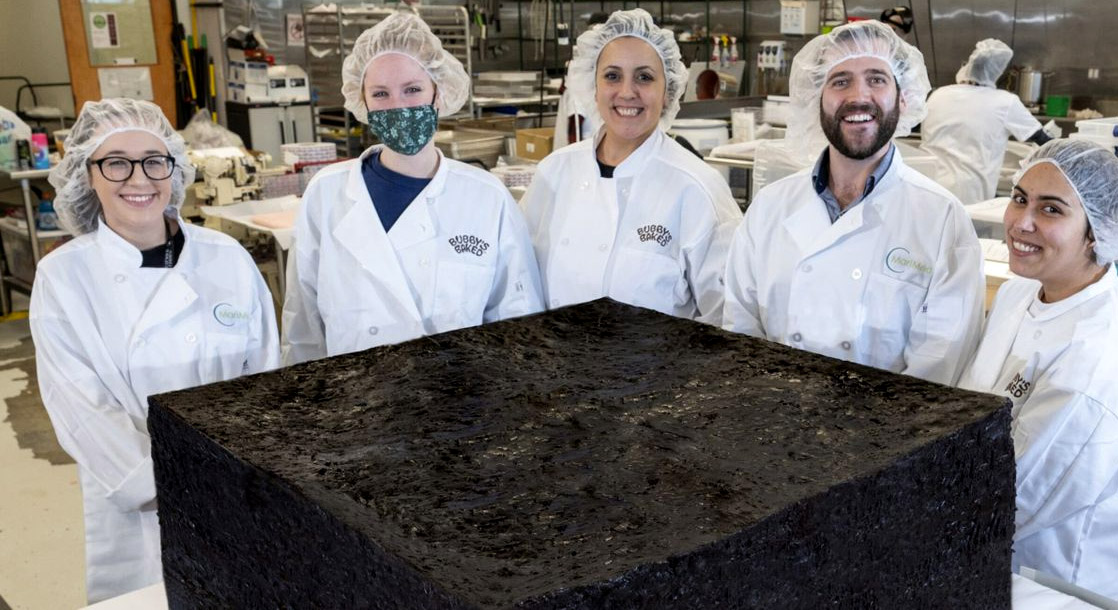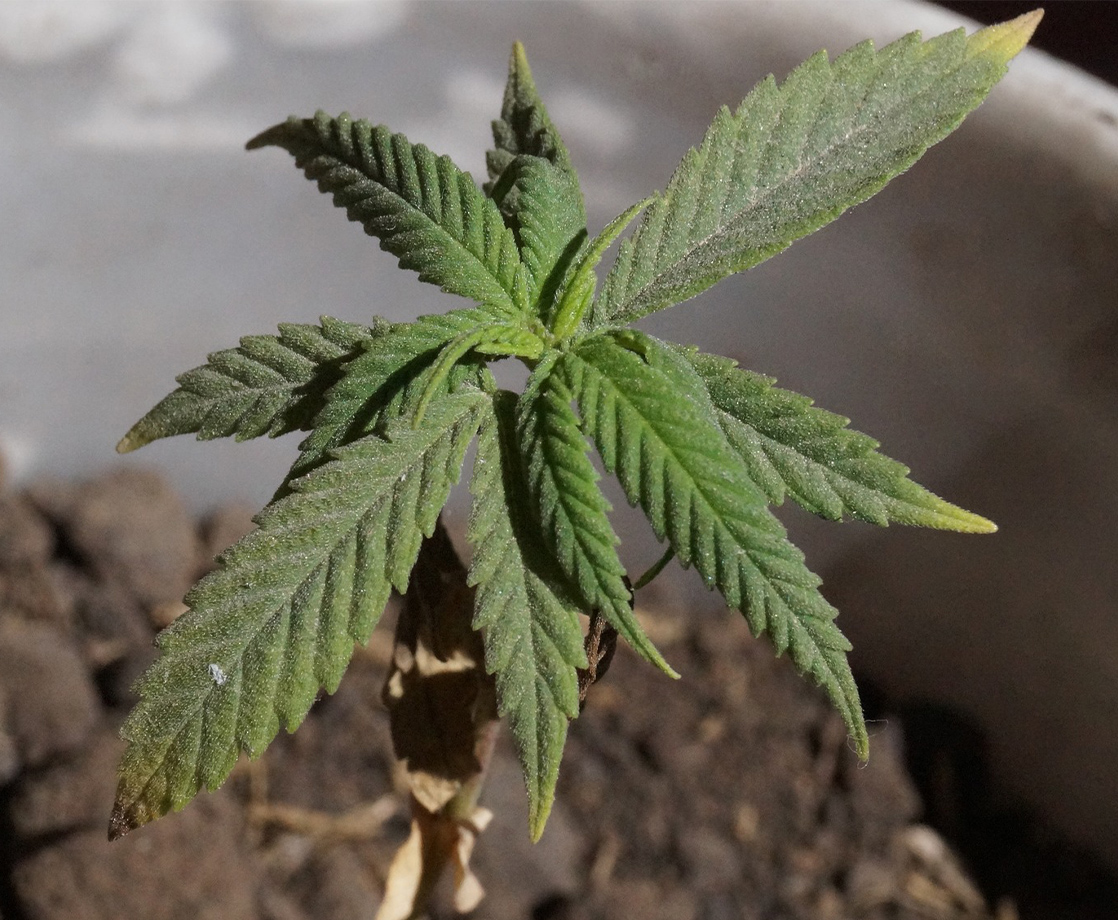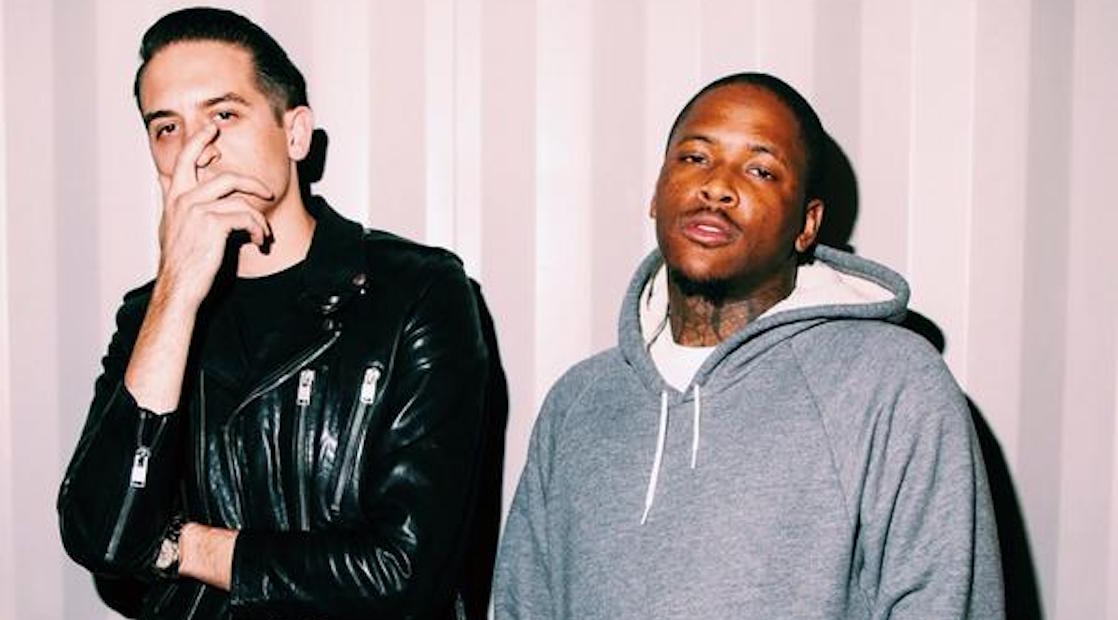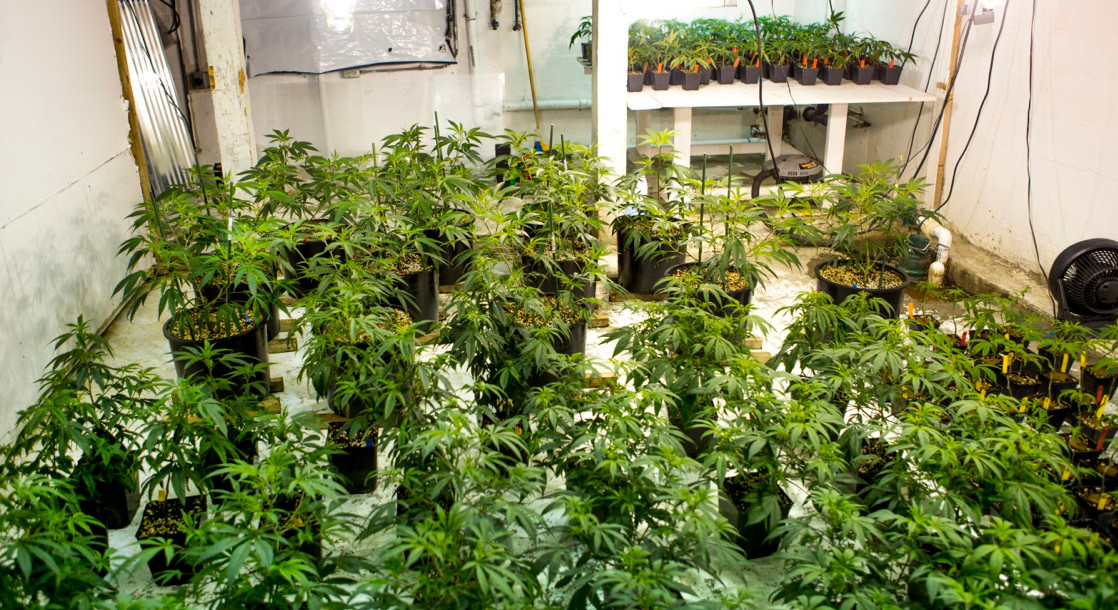Cover image via
A cannabis company in Massachusetts just baked the world’s biggest pot brownie.
The massive edible measures a full 3-feet by 3-feet, stands 15 inches tall, weighs 850 pounds, and at the current Massachusetts regulation of 5mg of THC per edibles serving or 100mg per package, contains enough brownie for 4,000 doses or 200 regular edible packages.
The brownie’s creator, the Norwood-based company MariMed, is betting that the Dec. 8 stunt — deployed on “International Brownie Day” — will inspire you to try its new Bubby’s Baked line of full-spectrum baked goods bites, which come in brownie, chocolate chip, and snickerdoodle flavors.
The gargantuan specimen is actually not high-dose if you crunch the numbers, as Leafly did — each pound of brownie contains 24mg of THC.
“When we first started talking about this, we realized there were several of us who had been infatuated with the Guinness Book of World Records over the years,” said MariMed’s chief product officer and senior vice-president of sales, Ryan Crandall. “And the idea of getting in there was exciting.”
Sadly, after the feat was accomplished, the MariMed team was informed by Guinness that it is not currently accepting records for anything cannabis-related (records for alcohol, however, are accepted). According to Guiness, the world’s current largest (non-medicated) brownie clocked in at a relatively lackluster 250 pounds. Pathetic!
Regardless of Guiness’s slight, the weed brownie has been a constant in cannabis edibles culture for decades. Versions dating back to the ‘60s and ‘70s were often rudimentary, with the plant’s vegetable matter likely to get caught in one’s teeth via chocolate-y bites (as detailed in historical accounts like San Francisco writer Alia Volz’s biography of her brownie-dealing mother Home Grown). The psychoactive snack came to fame again in the ‘80s and ‘90s when a grandmother named Mary Jane Rathburn brought them illegally to HIV/AIDS patients to help alleviate their symptoms.
News of the (unofficially) record-breaking brownie may put smiles on the faces of Massachusetts cannabis consumers, but in other ways, five years after the state legalized weed, it’s industry has become a cautionary tale, too. Despite 18,000 employees working in the state’s weed business, $2.2 billion in revenue from the industry, and a majority opinion that legalization has been a good thing, the state still faces some serious issues, according to advocates. For one, local governments wield too much control over the state’s cannabis economy, and secondly, a there’s a lack of opportunities for equity candidates.
The problems are related. Only 16 of the state’s 194 cannabis companies are operated by participants in the state’s equity program — largely based on the fact that the local jurisdiction in charge of deciding who gets business licenses are not required to take equity issues into account.
Follow Caitlin on Instagram











